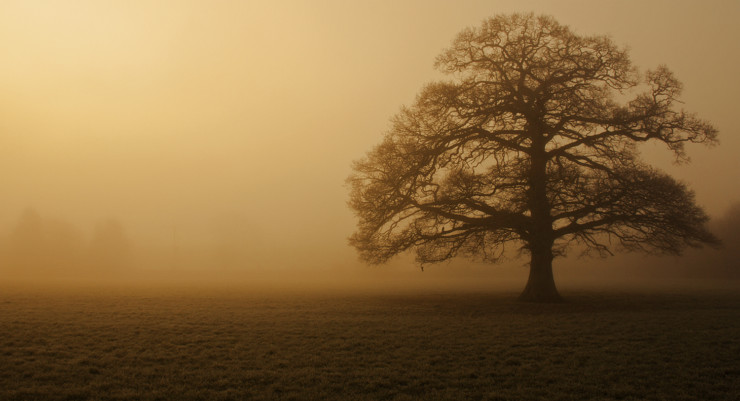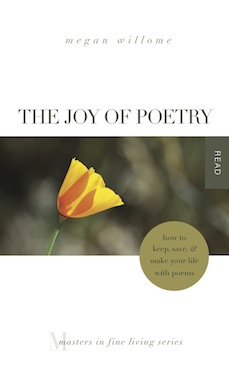In December I received an email from a friend. She wrote, “I just wanted to say thank you for lunch yesterday and thank you for listening and understanding and for not freaking out when I talk about dying.”
She could have been taking about the recent death of her husband. But she wasn’t. She was talking about herself.
During this outing at our favorite lunch spot — the fancy place with the good macaroni and cheese she likes — we both ordered breakfast. She swore she would not be getting her regularly recommended mammogram or colonoscopy in 2019 because, well, if either test came up positive, she’d just as soon let nature take its course.
“I get it,” I said. And so we talked about death in the harsh light of noon, over eggs.
She’s a poetry friend, someone who reads and writes the stuff. She introduced me to Ted Kooser shortly after we met, and now I can’t read him without thinking about her. Their styles are similar — down-to-earth, full of emotion. They both write about rural life.
Her birthday fell about a month after her husband’s death, and I sent her a text: “I know it’s your birthday. I know it’s not happy.” I wanted to send a Kooser poem, but A Birthday Card wasn’t right, despite the “hurried S.O.S., with love” at the end. It begins:
In her eighties now, and weak and ill
with emphysema, my aunt sends me
a birthday card—a tossing ocean
with clipper ship—and wishes me well
My friend’s clipper ship is still tossing. Back to the Kooser archive.
A month after her birthday our town square, so near her house, was decked with lights for the holidays. She didn’t send me a Christmas card for first time ever. I didn’t expect one, of course, but I noticed its absence. The card I sent her featured a donkey, which made me think of Kooser’s poem Christmas Mail, in which a rural mail carrier delivers cards:
At stop after stop,
she opens the little tin door
and places deep in the shadows
the shepherds and wise men,
the donkeys lank and weary,
the cow who chews and muses.
My friend and I have always sent poems to each other, and I keep encountering poems I think might be just what she needs, but I have not forwarded even one. There’s usually a season in grief when you can’t read, and I don’t want to rush her.
So instead I asked my friend for her favorite Kooser poem. She responded with one I’d never read, So This Is Nebraska.
“The images sound so much like rural Texas,” she said.
The poem mentions July, which is still months away. By then she’ll be an entire school year removed from her husband’s death. When that month comes, she won’t have to travel far to find a “gravel road with a slow gallop / over the fields.” As she squeezes the air, she may want to pull off permanently, let the weeds take over, welcome the mice.
But she won’t. She won’t dance either — probably not this July. But she will keep driving, “wave instead.”
So This Is Nebraska
The gravel road rides with a slow gallop
over the fields, the telephone lines
streaming behind, its billow of dust
full of the sparks of redwing blackbirds.
On either side, those dear old ladies,
the loosening barns, their little windows
dulled by cataracts of hay and cobwebs
hide broken tractors under their skirts.
So this is Nebraska. A Sunday
afternoon; July. Driving along
with your hand out squeezing the air,
a meadowlark waiting on every post.
Behind a shelterbelt of cedars,
top-deep in hollyhocks, pollen and bees,
a pickup kicks its fenders off
and settles back to read the clouds.
You feel like that; you feel like letting
your tires go flat, like letting the mice
build a nest in your muffler, like being
no more than a truck in the weeds,
clucking with chickens or sticky with honey
or holding a skinny old man in your lap
while he watches the road, waiting
for someone to wave to. You feel like
waving. You feel like stopping the car
and dancing around on the road. You wave
instead and leave your hand out gliding
larklike over the wheat, over the houses.
— Ted Kooser
Photo by Marilyn Peddle, Creative Commons, via Flickr. Post by Megan Willome, author of The Joy of Poetry.
“Megan Willome’s The Joy of Poetry is not a long book, but it took me longer to read than I expected, because I kept stopping to savor poems and passages, to make note of books mentioned, and to compare Willome’s journey into poetry to my own. The book is many things. An unpretentious, funny, and poignant memoir. A defense of poetry, a response to literature that has touched her life, and a manual on how to write poetry. It’s also the story of a daughter who loses her mother to cancer. The author links these things into a narrative much like that of a novel. I loved this book. As soon as I finished, I began reading it again.”
—David Lee Garrison, author of Playing Bach in the D. C. Metro
- Perspective: The Two, The Only: Calvin and Hobbes - December 16, 2022
- Children’s Book Club: A Very Haunted Christmas - December 9, 2022
- By Heart: ‘The night is darkening round me’ by Emily Brontë - December 2, 2022


L.L. Barkat says
I love that she took the time to thank you, even though perhaps one would “expect” a friend to listen. In my own experience, I find that it’s these little things (eg, a thanks for something that might otherwise be assumed) that take a friendship a long way.
I also love that you asked her for her favorite poem, as a way to make room for her own journey with this difficult loss. Not that we can’t also give poems and thoughts. But I do like that you asked. It suggests that “gratitude together” is also about the way we make way for each other (and this shows a deep-down gratitude for each other).
Megan Willome says
Maybe that’s what I’ve learned with age and experience, to “make way” for each other. I used to think I had such brilliant things to share, but even if they are brilliant, if a person isn’t in a space to receive them—and I have been in such a place—then it’s better to invite. And to have gratitude for our time together.
Laura Brown says
Yes. Sometimes in the desire to help, we do things that are good in themselves but not quite right in the moment. We offer what we would want, or what we enjoy giving, and don’t ask instead.
“What do you need?” or “What can I do?” are good starts. Something specific (“Can I bring you a pan of lasagna?”) can be even better. Your asking for her favorite Kooser poem (also a new one to me), though, was so much more than the wide-open first kind or the “please receive this” second kind.
Megan Willome says
Laura, you’re giving us such good lanes to navigate in our friendship: between “the wide-open” and “the please receive this.” Maybe we won’t always get it right, but maybe we also won’t stray off-course, into oncoming traffic.
Donna Falcone says
Megan… this really touches me. What a friendship – and what a blessing you are to each other. I can tell in how you give her space but are there, even quietly, to be the friend she needs from moment to moment… because that can change, can’t it?
Your words bring my father to mind having freshly (but by now, less freshly) just lost his wife… I see his tractor surrounded by field grasses out back… the lawn he is considering letting someone else mow for him… the piles of things she saved sorted out into what to toss and what to give and what to burn… the planning he makes every day to leave and how much care he takes to reduce work left behind for others when that happens… and of course, what is there to do but listen, and help him plan, and swallow the pit of knowing that’s there is no life without the pit.
I know I went veering off course there… but your writing does that. I feel like I should say sorry but I really want to just say thanks.
Megan Willome says
Oh, Donna, please don’t apologize. You are standing in a sacred space with your father, and listening and helping him plan is valid.